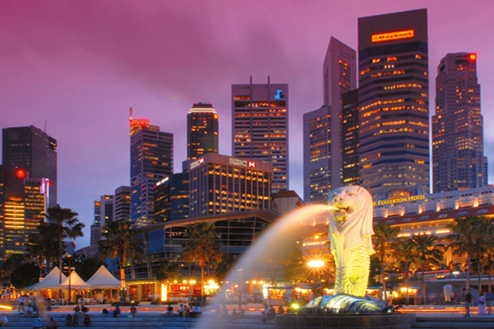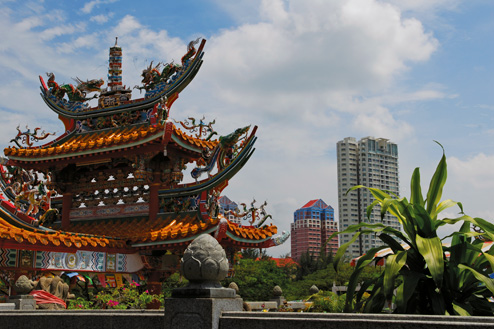Environmental Issues
Environmental issues rank high on the government’s priorities because the island is tiny and densely populated (6,066 people per square kilometre) – so a little can harm a lot. There is keen awareness that environmental progress is sustainable only if matters are viewed from economic, social and health perspectives. Singapore’s experiences show that environmental protection and economic growth are mutually supportive. The National Environment Agency, a major government body tasked to ensure a quality environment for Singapore, awards individuals and organisations for outstanding contributions to the protection of the environment. Over the next decade, NEA aims to have the population incorporate environmental protection practices into everyday life. For instance, recycling has become part of the household rubbish disposal process.
Care of the environment takes place at numerous levels – from industrial waste management, emission controls and water recycling, down to littering; Singapore is renowned as being possibly the cleanest city in the world. To combat air-pollution, the government has strict vehicular exhaust emission controls; the sight of black fumes pouring out of a car, common in the 70s, has been completely eradicated. Furthermore, most cars use unleaded fuel.
There is a growing environmental consciousness among citizens evidenced by the initiatives taken by ad-hoc citizen groups and non-governmental organisations to protect the environment. The government also plays an active role in educating the public: the Green Labelling Scheme, for example, has been implemented to promote ‘green’ consumerism among the public and to encourage manufacturers to produce eco-friendly products. This growing awareness is also seen in the building industry where public recognition is accorded to ‘intelligent’ buildings designed to reduce electricity consumption by way of better insulation materials, automatic dimmers and similar innovations.
Care of the environment takes place at numerous levels – from industrial waste management, emission controls and water recycling, down to littering; Singapore is renowned as being possibly the cleanest city in the world. To combat air-pollution, the government has strict vehicular exhaust emission controls; the sight of black fumes pouring out of a car, common in the 70s, has been completely eradicated. Furthermore, most cars use unleaded fuel.
There is a growing environmental consciousness among citizens evidenced by the initiatives taken by ad-hoc citizen groups and non-governmental organisations to protect the environment. The government also plays an active role in educating the public: the Green Labelling Scheme, for example, has been implemented to promote ‘green’ consumerism among the public and to encourage manufacturers to produce eco-friendly products. This growing awareness is also seen in the building industry where public recognition is accorded to ‘intelligent’ buildings designed to reduce electricity consumption by way of better insulation materials, automatic dimmers and similar innovations.













